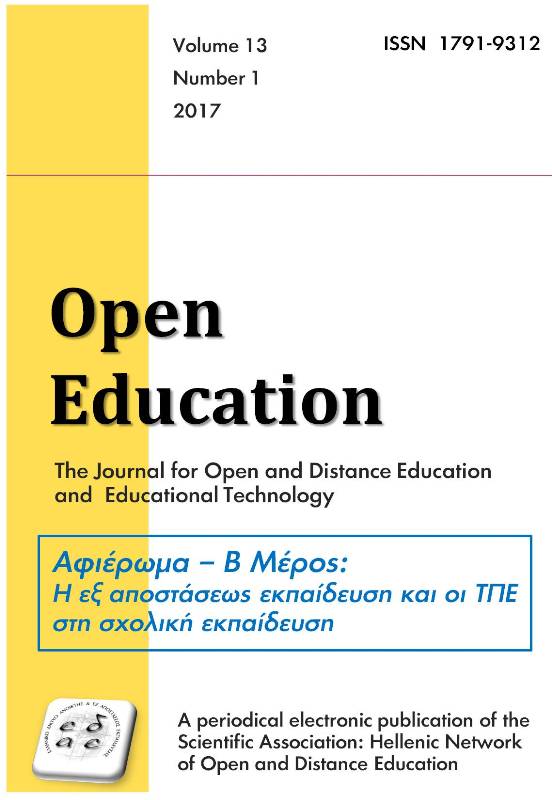Application and evaluation of the lesson entitled «Learning to learn how to exercise» that was taught by the distance learning method, within the frame of an Excellent Club in the Model Experimental Junior High School of Patras

Abstract
Taking advantage of the new legislation concerning the Experimental schools, we proceeded to the designing, applying and providing a whole course with the method of DE in the scientific field of Physical Education during the school year 2013-14. The participating students (twenty in number) were in the third grade of the experimental junior high school of Patras. In order to assess the elements which comprise this educational practice we chose a questionnaire with open and closed questions as a research tool for gathering data. This questionnaire has been distributed to the participating students as well as taking six semi-structured interviews.
The process of evaluation gave us the ability to characrerise this effort extremely successful, whereas, it, simultaneously, showed the expediency of repeating similar educational implementations in the secondary education. The educational material, the written assignments, the plenary session, the elements of communication and the organizational context assisted and supported to a great extent the overall educational
process. In parallel, the research process has brought into surface some points and facets of the evaluation process which should be reexamined and redefined.
Article Details
- How to Cite
-
Καμπύλης Ν. (2017). Application and evaluation of the lesson entitled «Learning to learn how to exercise» that was taught by the distance learning method, within the frame of an Excellent Club in the Model Experimental Junior High School of Patras. Open Education: The Journal for Open and Distance Education and Educational Technology, 13(1), 38–53. https://doi.org/10.12681/jode.13911
- Issue
- Vol. 13 No. 1 (2017)
- Section
- Section 1
Copyright Notice
Authors who publish with this journal agree to the following terms:
Authors retain copyright and grant the journal right of first publication with the work simultaneously licensed under a Creative Commons Attribution Non-Commercial License that allows others to share the work with an acknowledgement of the work's authorship and initial publication in this journal.
Authors are able to enter into separate, additional contractual arrangements for the non-exclusive distribution of the journal's published version of the work (e.g. post it to an institutional repository or publish it in a book), with an acknowledgement of its initial publication in this journal.
Authors are permitted and encouraged to post their work online (preferably in institutional repositories or on their website) prior to and during the submission process, as it can lead to productive exchanges, as well as earlier and greater citation of published work.


